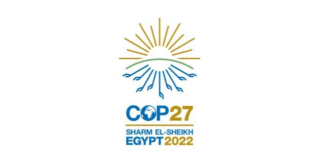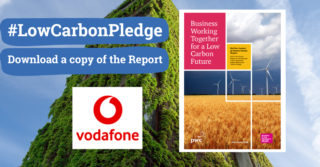How Gas Networks Ireland are working to reduce their emissions
Gas Networks Ireland Gas Networks Ireland (GNI) has adopted an iterative multi-year approach to reducing the environmental impact of its business activities. Significant milestones on this journey have been the implementation of an Environmental Management System (certified to ISO 14001) in 2012 and achieving the Energy Management System certification (ISO 50001) in 2014. In 2015 GNI were one of the first companies in the country to achieve the Asset Management System Standard ISO55001. Investment is taking place in implementing leading edge, asset management systems and processes, to better manage network asset performance while increasing energy efficiency. GNI is an active participant in the Government’s Public Sector Monitoring and Reporting (PSMR) initiative. While the PSMR aims to achieve 33% energy saving for the public sector by 2020, GNI are presently on track to exceed this ambition with 42% energy savings already achieved. Energy savings are being underpinned by metering and energy efficiency drives that are taking place at all office locations along with the replacement of inefficient lighting and heating solutions.
GNI has replaced its older vehicle fleet with new and more efficient vehicles and manages this fleet more efficiently through enhanced inspection procedures and programmes to increase employee awareness of fuel consumption. In 2012 GNI completed the construction of its Network Services building. The building was the first office building in Ireland to be awarded the coveted ‘Excellent’ rating under the bespoke building BREEAM assessment procedures. BREEAM is the world’s leading design and assessment method for sustainable buildings. GNI are currently planning to upgrade their headquarters building in Cork and sustainability considerations (energy efficiency and resource management) will be central to the upgrade design. GNI is undertaking actions to embed sustainability and decarbonisation principles at the core of its business decisions and strategy.
While the analysis within this report focused on Scope 1 and Scope 2 emissions sources, GNI is actively focusing on emissions sources beyond this. GNI has implemented a travel policy aimed at reducing the carbon footprint associated with employee work related travel. GNI procures significant volumes of services and materials to support the maintenance and delivery of the gas transportation network and by enhancing the procurement processes GNI is driving better sustainability practices through the entire supply chain. The company ensure environmental and sustainability requirements are embedded in the procurement processes right through to delivery stage of the contract.
For example, larger contractors are required to provide GNI with monthly reports on their performance against a range of environmental KPIs in relation to waste management and energy use. Contracts are designed so as to incentivise best environmental practice throughout project delivery. Where contractors outperform KPIs, the financial terms of the contract contain provisions to allow bonus payments to be made. Similarly, KPI underperformance can result in the imposition of financial penalties.
Along with GNI’s commitment to the Low Carbon Pledge, Gas Networks Ireland has a strategic plan to achieve 20% renewable gas on the network by 2030. To achieve this level of Renewable Gas, GNI is focusing on supporting anaerobic digestion (AD) within the agriculture sector and the commercial waste industry sector. Gas Networks Ireland are working with Green Generation as part of an Innovation fund supported project to complete the first Renewable Gas grid injection project for Ireland in Cush, Co. Kildare. The project is expected to commission in 2019 and will deliver the first injection of Biomethane into the Natural Gas Grid in Ireland.
Gas Networks Ireland is also currently developing a national network of Compressed Natural Gas (CNG) re-fueling stations for public and private transport operators. By 2030 GNI forecast that there will be a network of 172 CNG stations (42 Public stations) with capacity to service 4,484 HGVs and 1,435 Buses. This would represent 26% of the 10 Tonne HGV Segment of 17,000 vehicles and 14% of the Bus Market (10,000 buses).
GNI recognise that in order to place sustainability at the core of its strategy it must adapt a holistic approach across the company. The company has established a Climate Action Working Group to help achieve its carbon reduction ambition. The Working Group is currently assessing 32 carbon reduction initiatives with a view to identifying a suite of initiatives to help drive the company’s decarbonisation efforts. Each business unit within GNI contributed to the identification of initiatives. Initiatives are currently being assessed on the basis of the potential achievable emissions reduction and the associated mitigation and abatement cost. Centralisation of sustainability within core strategy is reflected by the company’s decision to publish its first sustainability report in parallel with this year’s annual financial report. Linking sustainability reporting with financial reporting can help elevate sustainability as a core business metric. GNI’s sustainability report is aligned with the UN Sustainable Development Goals to illustrate how their efforts fit within a larger context for positive change.
Gas Networks Ireland have signed up to the Low Carbon Pledge. Find out more about the Pledge and how all the companies that have signed up are progressing.







